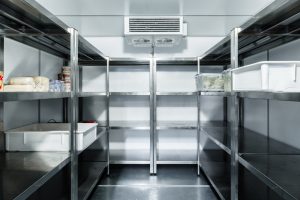Is a Fridge More Efficient in a Cold Room?
The Science Behind Refrigeration Efficiency
When it comes to optimizing the energy efficiency of your appliances, you might have wondered whether placing your fridge in a cold room can help reduce its energy consumption. It’s a common question, especially for those looking to save on their electricity bills and reduce their environmental footprint. In this article, we will explore the science behind refrigeration efficiency and whether colder room temperatures can indeed make your fridge operate more efficiently.
Understanding Refrigeration Basics
Before we delve into the impact of room temperature on fridge efficiency, let’s briefly review how refrigeration works. Your refrigerator functions by transferring heat from inside the fridge to the surrounding environment. It achieves this through a combination of components, including a compressor, evaporator, condenser, and refrigerant.
Here’s a simplified explanation of the process:
Compression: The compressor in your fridge pressurizes the refrigerant, causing it to become a high-temperature, high-pressure gas.

Condensation: The hot gas flows through the condenser coils at the back or underneath the fridge, where it releases heat into the room, causing the gas to cool and condense into a high-pressure liquid.
Expansion: The high-pressure liquid then flows through an expansion valve, where it rapidly expands, reducing its pressure and temperature.
Evaporation: The low-pressure liquid enters the evaporator coils inside the fridge, absorbing heat from the food and the interior, which causes it to evaporate back into a low-pressure gas.
This cycle repeats, creating a continuous process of heat transfer, keeping the inside of the fridge cool.
The Impact of Room Temperature
Now that we understand the basic refrigeration process, let’s consider how room temperature affects the efficiency of your refrigerator.
Warmer Room Temperatures
In a warmer room, the condenser coils on the back or underneath your fridge have to work harder to release heat into the environment. This is because there is less of a temperature difference between the hot refrigerant and the room, making it less efficient at dissipating heat. As a result, your fridge’s compressor may run longer and more frequently to maintain the desired temperature inside, leading to higher energy consumption.
Additionally, when the room is warmer, the temperature inside the fridge can rise more quickly when the door is opened, causing the compressor to work even harder to cool it back down. This increased workload on the compressor can significantly impact energy efficiency.
Colder Room Temperatures
Conversely, placing your fridge in a colder room can potentially improve its efficiency. In colder environments, the condenser coils can more effectively release heat since there is a greater temperature difference between the refrigerant and the room. This means the compressor may run for shorter periods and less frequently, reducing overall energy consumption.
Furthermore, when the room is colder, the fridge doesn’t have to work as hard to maintain its internal temperature, as the surrounding environment helps keep it cool. This results in less energy expenditure and potentially longer lifespan for the appliance.
Optimal Temperature Range
While colder room temperatures can benefit your fridge’s efficiency, it’s essential to maintain a balance. Extremely cold environments, such as freezing garages or outdoor sheds in winter, can lead to other issues. Here are some considerations:
Temperature Extremes: Extremely low temperatures can cause the refrigerant and oil in the compressor to become too viscous, potentially damaging the appliance or reducing its lifespan. Likewise, if the room temperature rises above a certain point, the fridge may struggle to cool its contents efficiently.
Temperature Monitoring: It’s advisable to monitor the temperature inside both your fridge and the room to ensure they stay within an optimal range. Many modern refrigerators come equipped with sensors to adjust their cooling cycles based on room temperature.
Energy Savings: The energy savings from placing your fridge in a colder room may not be substantial enough to justify the inconvenience of relocating it or compromising its performance. It’s crucial to weigh the potential benefits against the practicality and comfort of your living situation. For more information on the subject click this.

Conclusion
In conclusion, a fridge can indeed be more efficient when placed in a colder room. Lower room temperatures allow the condenser coils to work more efficiently, reducing the workload on the compressor and potentially saving energy. However, it’s essential to strike a balance, as extreme temperatures can lead to other issues and may not justify the energy savings. Ultimately, when considering the placement of your fridge, it’s crucial to prioritize both efficiency and practicality to ensure the best performance and longevity for your appliance.

Recent Comments